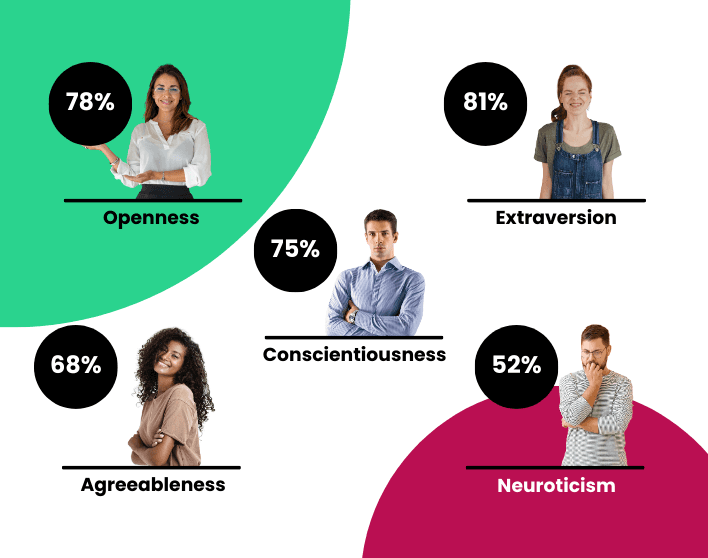Markellos Diorinos
CEO, Bryq
There's no denying that the world of work has considerably transformed over the past few decades. Today, it's not just about what you know, but also how you implement your knowledge. A wide variety of seemingly intangible qualities, known as 'soft skills', have taken center stage. For modern businesses and startups, your technical knowledge may get your foot in the door, but your emotional intelligence, communication abilities, leadership prowess, and other soft skills are what truly propel organizations forward.
In this ever-evolving employment landscape, these interpersonal competencies have become paramount all over the world. It's clear that soft skills are exceptionally valuable. From decision-making to problem-solving, team collaboration, or effective communication, these indispensable traits set the proficient professionals apart from the rest. Yet, unlike hard skills, these aren't abilities you can objectively measure with a degree or certification. This, in turn, presents the urgent need for efficient soft skills assessment lexicons.
Increasingly, firms rely on assessment tools to gauge these attributes in potential hires and existing employees. It's no longer enough to read a resume and conduct a traditional interview. Organizations need the ability to evaluate a candidate's full range of skills, including their emotional intelligence, problem-solving skills, and other personal traits that contribute to a thriving workplace culture and company success.
A comparative analysis of these soft skills assessment tools is therefore not merely a theoretical exercise; it is an integral part of strategic human resource management. The objective here is to delve into an in-depth study, discriminating various assessment tools available and guiding businesses in making informed decisions. The thesis promises to be a comprehensive guide, highlighting the strengths and pitfalls of various soft skills evaluation mechanisms.
In essence, this analysis aims at fulfilling the imperative need to examine and understand what these tools have to offer, their methodologies, benefits, fallibility, and the overall accuracy in evaluating the crucial soft skills, which hold the key to organizational success in 21st-century business.
Understanding Soft Skills Assessment Tools
Soft skills assessment tools, as the name suggests, are specialized instruments used to measure and evaluate an individual's soft skills. These tools help identify the strengths and weaknesses in a person's non-technical abilities, including their communication abilities, leadership potential, emotional intelligence, and problem-solving competencies. Not just limited to hiring, these tools have a significant role in shaping employee development strategies, thereby promoting organizational growth.
Explanation of what Soft Skills Assessment Tools are
Definition and overall concept
Soft skills assessment tools are specifically engineered mechanisms, designed to examine various aspects of a candidate’s non-cognitive abilities. They go beyond traditional IQ tests and instead evaluate less tangible yet critical aspects like emotional intelligence, assertiveness, and communication prowess. Using a plethora of techniques, they measure a range of abilities, such as a candidate's emotional intelligence using emotional intelligence analysis, their behaviour using behavior evaluation tools, or their problem-solving skill through problem-solving skills evaluation.
Significance in evaluating potential hires
In today's highly competitive labor market, employers seek candidates who not only possess technical knowledge or 'hard skills,' but also a wide array of interpersonal 'soft skills.' Time management, assertiveness, problem-solving abilities, and customer service skills are just a few of the traits that employers closely scrutinize through tools like the time management assessment and customer service skills test.
Role in employee development strategies
Continuous improvement is key for any business. Because of this need for constant evolution, soft skills assessment tools aren't just beneficial for hiring; they also play a crucial role in overall employee development strategies. Regular assessment of employees using tools like leadership skills test or self-motivation skills test assists in identifying areas for improvement and planning focused training initiatives.
Broad categories of Soft Skills Assessment Tools
Self-reported questionnaires
One common form of soft skills assessments involves self-reported questionnaires. These direct inquiries help organizations measure qualities such as assertiveness or confidence through tools like the assertiveness skills measurement and confidence level measurement. The respondent's self-perception provides an understanding of their awareness and perception of their soft skills.
Behavioural and situational judgements tests
Besides questionnaires, behavioral and situational judgment tests also offer valuable insights. These include a series of hypothetical scenarios designed to evaluate a candidate's ability to handle typical and critical situations. He can reveal qualities like critical thinking, as assessed by tools like the critical thinking assessment.
Simulations and role-playing scenarios
Simulations and role-playing allow examiners to assess an individual’s reaction in real-time by crafting situations that mimic job-related scenarios. For instance, a teamwork ability assessment can involve a task requiring teamwork to test the individual's abilities to collaborate and contribute to team goals.
Factors influencing the choice of Soft Skills Assessment Tools
Scale and scope of the organization
The choice of soft skills assessment tools often depends on the scale and scope of an organization. Larger corporations may prefer comprehensive evaluations employing multiple assessment tools, while small businesses may lean toward simpler and less costly measures treating immediate necessities such as communication skills test or interpersonal skills review.
Specific soft skills to be assessed
The particular soft skills deemed critical for business success also influence the choice of assessment tools. One organization might prioritize leadership qualities and thus employ leadership skills test and emotional intelligence analysis regularly. In contrast, another may focus on customer-facing roles and thus prioritize the customer service skills test or personal traits evaluation.
Cost and ease-of-use
Practical aspects like cost and ease-of-use can also impact the decision. While an extensive and intricate test may provide an in-depth analysis, it may not be financially feasible or user-friendly, potentially making it a less attractive option compared to simpler, easy-to-use tests that provide necessary insight at an affordable cost.
Comparative Analysis of Popular Soft Skills Assessment Tools
The advent of technology and meticulous research in the field of human resource have brought forth several pioneering soft skills assessment tools. These tools, varying in their approaches and methodologies, offer unique methods and result output, making the choice for businesses all the more challenging. Therefore, a comparative analysis of these tools is imperative to understand their scopes and limitations.
In-depth look at prominent Tools in the market
Overview of each tool's approach
Some soft skills assessment tools focus on self-reported questionnaires, enabling individuals to evaluate their own emotional intelligence, communication abilities, and problem-solving skills. Tools adopting this approach often include Emotional Intelligence Analysis and Problem-Solving Skills Evaluation tools, allowing individuals to rate their abilities based on various scenarios and situations.
Notable features and drawbacks
On the other hand, tools operating on simulations and role-playing, such as Teamwork Ability Assessment or Leadership Skills Test, provide an immersive testing experience. Offering live feedback, these tools allow employers to evaluate candidates in real-time. However, such methods might resonate with uncertainty as the results are heavily dependent on the individual’s performance at the given moment.
Industries and sectors where the tool is widely applied
Behavior Evaluation Tools and Personal Traits Evaluation tools are widely used in customer service industries. They assess traits such as empathy, patience, resilience, and adaptability, all critical to customer-facing roles. Meanwhile, industries focusing on deadlines and swift turnarounds rely on Time Management Assessment tools to gauge their staff's effective time utilization abilities.
Stringent comparison of these tools
Evaluation of accuracy and reliability
While the accuracy and reliability of these tools are commonly subject to debate, it’s clear that standard self-reported questionnaires such as Confidence Level Measurement and Assertiveness Skills Measurement tools provide a degree of dependability. They serve as an insightful initial screening stage. However, they might bear the risk of subjectivity.
Examination of usability and accessibility
Usability and accessibility are key considerations for businesses when selecting soft skills assessment tools. While robust simulation tests such as Communication Skills Test and Interpersonal Skills Review tools provide real-time evaluation and feedback, they might require sophisticated setup and IT infrastructure. On the contrary, conventional tests like Soft Skills Grading are simple to administer, making them an accessible choice for businesses of various scales.
Scrutiny of cost-effectiveness and ROI
Cost-effectiveness and return on investment (ROI) are also vital considerations in the comparative analysis. Higher-end assessment tools involving complex simulations and role-playing scenarios could often be costlier than more straightforward questionnaires or Behavioral Evaluation Tools. However, the insights and accuracy these tools offer could potentially boost hiring success rate, indicating a higher ROI.
Real-world examples of successful applications
Case studies showing effectiveness
Case studies often highlight the effectiveness of these tools. For instance, companies using Teamwork Ability Assessment tools report better team cohesion and collaboration, while those using Soft Skills Grading tools find them instrumental in improving employee performance over time.
Discussion on user feedback
User feedback has been pivotal in shaping these tools. For example, feedback from organizations using Leadership Skills Test tools and Customer Service Skills Test tools show that these tests help in identifying the right leaders and compelling representatives, thereby improving overall team efficiency and customer satisfaction. In essence, the proper understanding and deployment of these assessment tools can be transformative for organizations, as they work on enhancing human skill-sets to usher in better business outcomes.
Advantages and Pitfalls of Soft Skills Assessment Tools
Like any evaluative systems, soft skills assessment tools too come with their unique sets of advantages and limitations. Recognizing these can allow organizations to utilize these instruments more effectively and mitigate potential drawbacks.
Highlighting the Pros
Insight into a potential hire's capability beyond hard skills
While hard skills are concrete and easily assessable, understanding an individual's soft skills can reveal much about their potential fit in a team or organization. Soft skills assessment tools serve this purpose proficiently. Communication Skills Test or Emotional Intelligence Analysis helps gauge a candidate's ability to interact and build relations within the team and the organization, serving as a testament to their fitment beyond just hard skills.
Guidance for targeted training and development
With the data from tools like the Soft Skills Grading or Problem-Solving Skills Evaluation, organizations can target specific areas for training and development purposes. It helps them recognize which soft skills require improvement or refinement, creating more focused training processes and ultimately, more skilled workforce.
Contributing to better team formation and cultural fit
Tools like the Teamwork Ability Assessment and Leadership Skills Test are exceptionally beneficial in forming teams or finding leaders within the team. By providing insights about an individual's ability to work collaboratively or guide a team, these tools significantly contribute to the formation of efficient teams and cultural harmony within the organization.
Addressing the Cons
Limitations in quantifying soft skills
One common drawback of soft skills assessment tools, such as the Confidence Level Measurement or Assertiveness Skills Measurement, is their inherent limitation in quantifying intangible skills. Unlike hard skills, soft skills are subjective and less tangible, making them challenging to measure accurately across different individuals.
Possible biases in the assessment process
There could also be possible biases in the assessment process. For example, a self-reported questionnaire like the Self-Motivation Skills Test might be erroneous due to a candidate overvaluing or undervaluing their skills. Similarly, even complex Behavior Evaluation Tools or Personal Traits Evaluation might project skewed results stemming from the current mental state or external pressure on the test-taker.
Need for periodic reevaluation and alignment
Soft skills are dynamic and can evolve and improve over time. Hence, there is a need for consistent reevaluation. Tests like the Customer Service Skills Test or Time Management Assessment need to be conducted regularly to observe development and changes, keeping the skills assessment aligned with the evolving nature of the profession.
Striking a balance in their application
Effective combination with other assessment methods
While soft skills assessment tools are a powerful resource, they serve best when combined with conventional techniques. A potential candidate should ideally be evaluated using a mix of these tools and traditional methods (like interviews and resumé screening). A comprehensive approach would paint a holistic picture of the candidate/employee.
Recognition of the evolving nature of soft skills
Finally, it is crucial to acknowledge that soft skills are not static. As the business environment is continually evolving, so are the desirable skills set. Hence, soft skills assessment practices should also be dynamic and update to cater to the changing demands, simultaneously adjusting the focus between critical thinking, problem-solving, leadership abilities, and other emergent soft skills.
Projecting Forward: An Outlook on Soft Skills Assessments
The evolving nature of the business world suggests an increasing demand for proficient soft skills in the years to come. As we move towards an increasingly digitized world, the human ability to adapt, collaborate, and creatively think will hold greater importance. This, in turn, presents an increased need for efficient and accurate soft skills assessments tools. Looking ahead, significant trends can be projected for soft skills assessments. As technology advances, we can anticipate the evolution of these tools to incorporate more sophisticated methodologies, be it machine learning or AI-enhanced analysis. More immersive, dynamic assessment methods might influence the landscape, further decreasing the dependency on human-biased evaluations. Online soft skills assessments, more pronounced now due to the pandemic-triggered remote working, is another trend shaping the future of these tools. However, what remains even more critical to the development is the pressing need for objectivity and standardization in these tools. Going forward, one can hope for a regulatory framework, perhaps at a global level, to establish specific standards for these tools - addressing issues concerning honesty, validity, and comparability. Against this evolving backdrop, the importance of soft skills in the workplace success is indisputable. Essential soft skills such as critical thinking, problem-solving, communication, leadership, and teamwork contribute significantly to an individual's performance and the overall success of an organization. Employees equipped with the right blend of technical expertise and soft skills are an asset any organization would desire. As identified from our analysis, no single mechanism can perfect the art of quantifying soft skills - each having their merits and drawbacks. Therefore, businesses should recognize their bespoke needs and accordingly adopt a balanced combination of methods to evaluate and enhance these skills within their workplace. Whether it is a self-reported questionnaire, behavioral test, or simulation, the fitting ensemble should aim at providing comprehensive insight into an individual's skill set. In essence, these powerful evaluative tools provide us valuable insight lurking beneath the iceberg - the soft skills - an individual's roadmap to navigating professional success and fostering a prosperous, collaborative work environment. Imbibing the lessons from this analysis, we can all strive towards a better understanding, evaluation, and development of these all-important soft skills paving the way for successful, fulfilling professional engagements.







